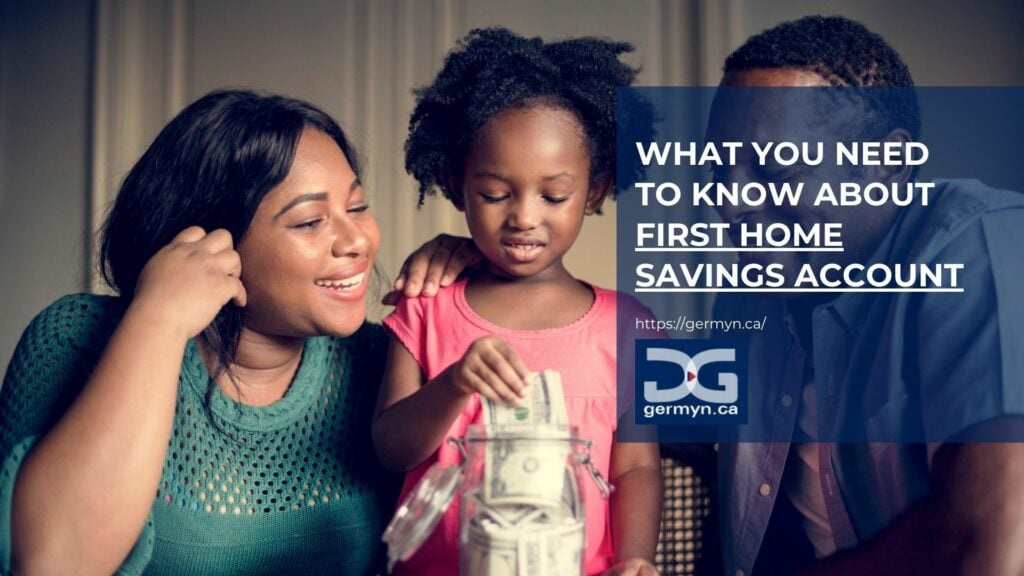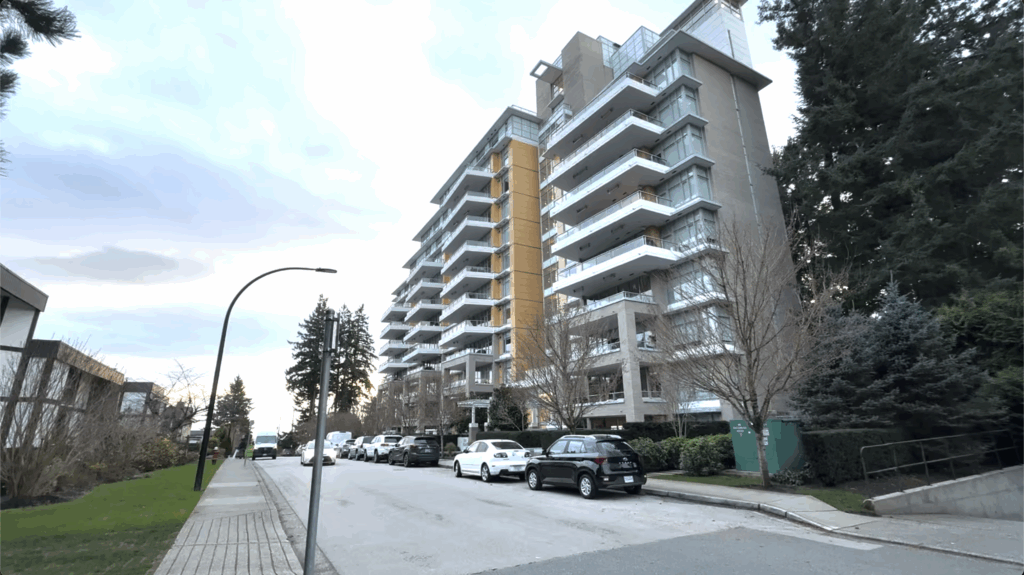What You Need to Know About First Home Savings Account

If you’re like most people, you’ve got a lot of questions about being a first-time homebuyer and maybe even some doubts. How do you save enough for a down payment? What about all those complex terms and conditions?
This article is your go-to guide for understanding the Tax-Free First Home Savings Account. This is a plan designed by the government to help regular savers like you reach that all-important financial goal of owning your first home.
I’ll make this as simple as possible by breaking it all down, from tax benefits to investment offerings. So, if you’re an aspiring first-time homebuyer, read on.
Your journey to homeownership just got a whole lot easier.
What Is a First Home Savings Account? (FHS)
So, what exactly is a First Home Savings Account (FHSA)? Think of it as a financial friend specifically created to help aspiring first-time home buyers like you.
A First Home Savings Account (FHSA) is a registered plan introduced by the federal government. It allows you to save up to a whopping $40,000 tax-free to put toward buying your first home. Yep, you read that right: $40,000, tax-free.
This is designed to help you reach your investment goal of becoming a homeowner.
Types of FHSAs
Before diving into the nitty-gritty, it’s worth knowing that FHSAs come in different flavours:
- Depository accounts: These are held with financial institutions. This can include cash, guaranteed investment certificates (GICs), or term deposits.
- Insured FHSAs: These are annuity contracts made with a licensed annuity provider.
- Trusteed FHSAs: These are trust accounts. They typically have a trust company that hold qualified investments like cash, GICs, term deposits, bonds, and mutual funds.
What Can You Hold in an FHSA?
The beauty of an FHSA is that it’s versatile. You’re not restricted to just parking your money in a standard savings deposit.
You can contribute annually up to $8,000, and there’s a lifetime contribution limit of $40,000.
How Does It Compare With Other Plans?
With the Home Buyers’ Plan, you have to repay the funds you withdrew. You can withdraw up to $35,000 from your Registered Retirement Savings Plan (RRSP).
But with an FHSA, you don’t have to pay back. That’s right, the money is yours to use for your first home!
What Are the Benefits of a First Home Savings Account?

You might be thinking, “Sure, saving for a home is great, but what sets an FHSA apart from other savings accounts or investment vehicles?” Excellent question!
Let’s proceed with the unique perks that make an FHSA not just a good choice but the best choice for aspiring first-time homebuyers.
Tax-Free Growth
Remember when I said you can save up to $40,000 tax-free? That’s a large amount of money you’re not handing over to the government in the form of taxes.
This tax-free benefit allows your investment earnings to grow faster than they would in a non-registered account.
Diverse Investment Offerings
You’re not stuck with just one type of investment. An FHSA allows for a variety of investment products. You can diversify and optimize your investment earnings by including:
• Savings deposits for the cautious investor.
• Stocks, options, and bonds for those looking to play the market a bit.
• Exchange-traded funds (ETFs) for those who want a blend of stability and growth.
Financial Flexibility
Missed a year of contributions? No problem. With the FHSA, you can carry forward unused contributions to the next year, up to an $8,000 maximum.
That gives you some room to maneuver when life throws its curveballs.
No Payback Required for Qualifying Withdrawals
This is a massive benefit. If you’re familiar with RRSPs and the Home Buyers’ Plan, you’ll know that typically, you have to pay back the amount you withdrew over a 15-year period.
With an FHSA, qualifying withdrawals for your home purchase don’t need to be repaid.
Tax Deductible Contributions
Contributions made to a FHSA are tax-deductible, resulting in a reduction of taxable income for the year in which they are made.
But unlike RRSPs, if you make contributions in the first 60 days of a new calendar year, they won’t count as deductions for the previous year’s income tax.
This is particularly beneficial if you find yourself in a higher tax bracket.
Longevity and Timing
The account can stay open for up to 15 years or until you reach the age of 71, giving you ample time to reach your financial goals.
This flexibility allows you to adapt your savings strategy to align with your life’s evolving circumstances.
Transition to Other Plans
If you decide not to buy a home, you can easily transfer it on a non-taxable basis to an RRSP or a Registered Retirement Income Fund (RRIF). You can also do this if you have leftover funds. Your money still works for you, just in a different way.
With benefits like these, it’s hard to see why anyone would pass on opening an FHSA. But before you rush to your nearest financial institution, there are some eligibility criteria and rules to consider.
What Are the Eligibility Requirements?
Okay, so the First Home Savings Account (FHSA) sounds great, right? But hold your horses. Not everyone can waltz into a bank and open one. There are specific criteria you need to meet to be eligible for this savings magic.
Let’s break it down:
Canadian Resident
First and foremost, you need to be a resident of Canada. So, if you’re considering making a move to the Great White North for these perks, you’ll need to establish residency first.
Age of Majority
You also need to be of the age of majority, which varies by province but is typically 18 or 19 years old. Sorry, youngsters, you’ll have to wait a bit longer to jump on the FHSA bandwagon.
First-Time Home Buyers
Here’s the biggie—you must be a first-time homebuyer. You can’t have owned real property solely or jointly with a spouse or common-law partner within the last four years.
This rule also applies to your spouse or common-law partner. They can’t currently own your primary residence.
Common-Law Partner
Speaking of common-law partners, you’re eligible to open an FHSA even if you have one. However, the same first-time homebuyer conditions apply to them as well.
So, do you check all these boxes? If yes, an FHSA could be a game-changer in your home-buying journey. If not, well, there are other savings and investment options you might want to explore.
Contributions and Withdrawals
Saving money for a first home can be quite the hurdle, but with FHSA, it becomes a bit smoother. Let’s break down how contributions and withdrawals work so you’re well-equipped to reach your financial goals.
Annual Contribution Limit
The annual contribution limit for an FHSA is $8,000. Keep this number in mind when planning your budget. Unlike RRSPs, contributions made during the first 60 days of a year can’t be claimed for the previous tax year.
So, the contribution period strictly follows the calendar year, starting in January and ending in December. For 2023, however, the account could only be opened as of April 1. So, any contributions made between April 1 and December 31 are the ones that count for this year.
Unused Contribution Limit
Unused contribution limits can be carried forward to the following year, with a maximum of $8,000. This flexibility is particularly helpful for regular savers who might not have a consistent income.
Also, your assessment letter will show how much of your unused FHSA contributions can be moved to future years.
Lifetime Contribution Limit
You can contribute to your FHSA up until you hit the lifetime contribution limit of $40,000. Once you reach this cap, you won’t be able to add more funds to the account.
Exceeding this limit will lead to a 1% tax on the highest excess amount each month until the excess is eliminated.
Tax Deductions for FHSA Contributions
Contributions you make to your FHSA are generally deductible on your income tax and benefit return. This reduces your taxable income.
Transfers from RRSPs to FHSAs are, however, not deductible. If you exceed your annual or lifetime contribution limits, your ability to claim these deductions might be affected.
Investment Choices for Your Contributions
While your money is in the FHSA, it’s not just sitting idle. You can invest these contributions similarly to how you would in an RRSP or TFSA.
This means your money can be in cash, GICs, bonds, mutual funds, or exchange-traded funds (ETFs). Different types of FHSAs offer varied investment offerings to align with your investment goals.
Tax-Free Withdrawal for Qualified Purposes
The most exciting part? When you’re ready to make a down payment, you can take money out of the account without paying taxes on it, as long as you use it to buy or build your first home.
Funds withdrawn from an FHSA for eligible purposes don’t need to be repaid.
Penalty for Withdrawal for Non-qualified Purposes
While the aim is to use the account for your first home, life happens.
If you have to make a non-qualifying withdrawal, there will be penalties. These withdrawals are not tax-free and cannot be claimed as deductions on your income tax return for any year.
Let’s Turn Your Homeownership Goals Into Reality

Buying your first home is a significant milestone, and it’s one you shouldn’t have to reach without the right tools and people by your side.
A First Home Savings Account can be a powerful financial instrument to help you secure your dream home in a tax-efficient manner.
Despite the benefits, an FHSA is still intimidating. Planning for a house is a HUGE investment. You wouldn’t want to tackle the big unknown on your own!
That’s why I’m here to help you out. I have years of expertise to make sure you get your first home safe and sure. Contact Germyn Group today, and let’s get you on the right track!
People lose money in real estate because they don't know what's actually happening.
Our YouTube channel fixes that.
We show you what most agents won't – what's really happening in Surrey & White Rock, and how to win whether the market's up or down.
It's free. No fluff. All signal.
Subscribe now — or stay guessing.



